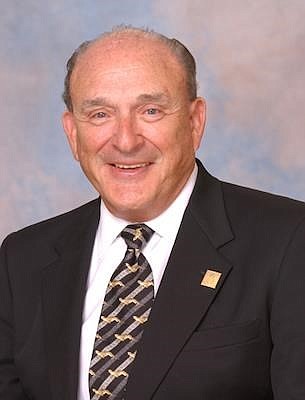- December 15, 2025
-
-
Loading

Loading

In the mid and late 1980s Earl Frye would semi-regularly fly to Atlanta from his Naples home for Bank of America board meetings.
A founder and director of several Southwest Florida banks, Frye found himself on the BofA board after a series of mergers. At the table with him were some business titans, including then-Delta Airlines CEO Ronald Allen and Miami Dolphins owner Wayne Huizenga, founder of AutoNation and Waste Management. When it was Frye’s turn to talk, surrounded by Fortune 500 CEOs, he would chuckle and quip “‘I can’t believe you are interested in hearing from a farm boy from Ripley, Ohio,’” says Frye’s son Michael Frye.
That humble, aw-shucks mentality was vintage Earl Frye, say several who knew him and worked with him. One of a handful of developers who helped turn Naples from a sleepy fishing village into a haven for high-net worth families and retirees, Frye died July 10 after a brief hospital stay. He was 92.
“He had incredible vision and was a great businessman,” says Mike Hughes, vice president and general manager of Downing-Frye Realty, the Naples-based firm Earl Frye co-founded with Wes Downing in 1962. Frye went on to own 11 RE/MAX franchises from Marco Island to Tampa. “Earl was also the kind of guy who had time for everybody and who knew everybody.”
Frye’s humility at big board meetings came from experience: he grew up on a small tobacco farm along the Ohio River, in a house without electricity or an inside bathroom. He got one pair of shoes a year while growing up, says Michael Frye, so, to preserve the soles Earl would often run around barefoot.
Frye got into real estate after serving in the U.S. Navy Submarine Service and graduating from the University of Cincinnati. He moved with his wife, Shirley Murdock Frye, and their young family, to Naples in 1962. In the early days the Frye family, says Michael, now 60, and the youngest of three Frye sons, barely got by.
But Earl Frye kept at it. In addition to teaming up with Downing, Frye was a key member of the Naples Area Board of Realtors. He served as president in 1969 and was inducted into NABOR’s Hall of Fame in 2009, after nearly 50 years of service.
Frye was a developer in numerous Naples communities going back some five decades. The list includes Meridian, Pebble Shores, Wilderness Country Club, Bonita Beach Club, Commodore Club, River Oaks and Stow-Away Mini-Storage, according to his official obituary. The founding president of the Collier County Appraisal Society, Frye was also an early dealmaker on Fifth Avenue in Naples. The elder Frye and a few other Naples pioneers, over breakfast, would draft agreements on napkins and seal them with handshakes, says Michael. Earl Frye also worked on development projects in North Carolina, where the family had a second home.
Michael Frye credits his dad’s success to an uncanny ability to set and stay hyper-focused on goals. Earl, recalls Michael, would tape his goals to the back of his closet door while growing up. Earl Frye would then look at those goals everyday before he left the house. “He was an extremely dedicated goal-setter,” says Michael Frye. “He would always take the extra step.”
One goal Earl Frye had dated back to when he was young man, seeing a family member struggle to pay medical bills. “He made a promise to himself that he would make enough money so that never happened to anyone else in his family,” Michael says.
All of Frye’s three sons went on to careers in real estate. Michael recalls that while his dad worked long hours — “working to him was like other people playing golf,” he says — Earl always made time for his family.
A pair of significant lessons Michael learned from his dad, essentially cousins of setting goals, was to always aim for the stars and never get complacent. “After we closed our own deals or projects,” says Michael, “he would ask us, ‘what did you learn from this? What could you do better next time?”